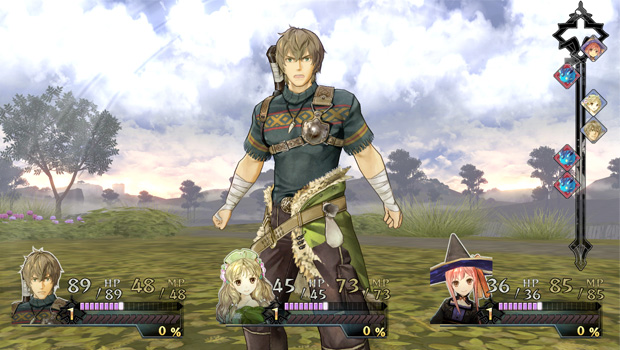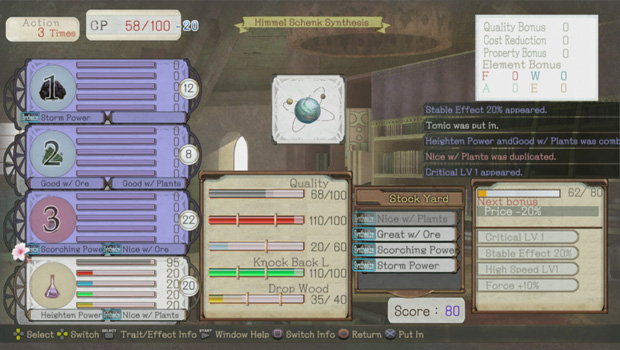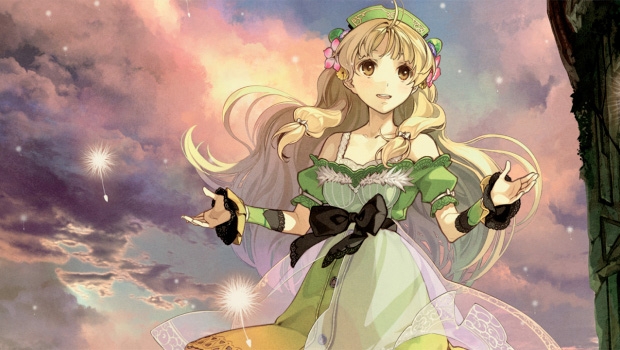With the recent announcement of Sony's PlayStation 4, in addition to the upcoming announcement of Microsoft's newest system and Nintendo's release of the Wii U, it's been an exciting time for fans of the role-playing genre. As with each generation, there are tons of new technological possibilities for long-running franchises such as Final Fantasy, Tales and Atelier. These games will be getting bigger and bolder, but just as importantly will have to stay true to the roots of their respective series. Tecmo Koei's recent release of Atelier Ayesha: the Alchemist of Dusk, exclusively for the PlayStation 3, does a good job of this. Combining the roots of the Atelier series with a new vibrant world creates a solid, albeit flawed, JRPG experience that should leave most fans satisfied.
As the fourteenth title in Gust's Atelier series, Atelier Ayesha shifts players from the previous world of the Arland series, and into a new world where alchemy is a lost art, much like the PlayStation 2's Mana Khemia. The story revolves around a young apothecary named Ayesha who is looking for her younger sister, Nio, who suddenly disappeared one day when she was out gathering herbs. A departure from the more whimsical styles of their last title, Atelier Meruru, Ayesha's search for her sister adds a sense of intimacy to the game bringing it much closer to the narrative quality of the highly-acclaimed Atelier Totori than either Meruru or Rorona. Although none of the game's moments ever quite reach the cathartic impact of Totori's quest to find her mother, Ayesha's narrative is strong enough to pull gamers through the game's three years of alchemy, traditional turn-based battling and timed events.
Even though the three year span of gameplay seems substantially shorter than the three years spent in the Arland series, much of the game is now streamlined which is either a good thing or bad thing depending on how much you loved the in-depth synthesis feature from the previous games. This time around, most items can be reproduced multiple times within a single day even at low alchemy levels. You can also create time-saving items fairly early on to help speed up travel and gathering. As a result, you never feel pressure to complete the game's main objective within the allotted time as there are no immediate deadlines that Ayesha has to fulfill other than a few expository quests during the 25-50 hours you're playing the game.

Unlike the Arland series where the three heroines focused on building their respective alchemy careers through requests until the end of the third year, Atelier Ayesha uses a new progression system called the "memory diary." The equivalent of requests from the previous games, fulfilling these diary entries grants various bonuses to the player including synthesis bonuses, attack bonuses, etc. Every action in the game gives players memory points which can be allocated towards completing various entries.
While the game's progression system does give the game a much more open-ended type of feel, it's sometimes confusing as to where the player is supposed to go. On more than one occasion, I found myself wandering aimlessly around the map trying to either trigger the game's timed events or going into and out of areas to try and find the next story sequence.
Much like the game's predecessors, Atelier Ayesha places a huge emphasis on the game's characters and their personalities. Although the usual anime tropes are all there, from the childhood friend Erine to the quiet tsundere Linca, each of the characters were beautifully designed by character designer Hidari (Fractale) to help breathe life into the world. Unlike previous games where most of the endings involved playable characters, each NPC who helps Ayesha during her quest has his or her own unique ending leading to plenty of individualized endings in the game. Which, unless you're following a guide, are sadly easy to miss.

Par for the course from Studio Gust, the soundtrack in Atelier Ayesha is a treat for the ears. Featuring some of the best tracks that the series has to offer so far, along with being the most extensive, a lot of the pieces help create an ethereal and fantastical ambiance. Nearly each area and character has their own original theme composed from the brilliant minds of Daisuke Achiwa, Kazuki Yanagawa, Yu Shimoda and Georges Bizet. It's easily one of the most evocative soundtracks on the PlayStation 3 to date.
Unfortunately, the game's presentation can only go so far as to making up what all fans already know. The game is available in English only. While the usual Bang Zoom Entertainment's voice actors do a decent job conveying the feelings of the characters, emulating the original Japanese seiyuus in the process, it really comes down to the player's preferences and how they feel about English dubbing in a Japanese game. Not being able to switch between subs and dubs is quite a departure from the previous games in the Atelier series where players were given the choice between the two dubs, although it's been promised that future entries will feature both dubs again.
In the end, with its strong presentation, entertaining script and enjoyable characters, Atelier Ayesha ends up being greater than the sum of its parts and more than makes up for any of its inherent flaws. Although it may not be the strongest entry into the series, the new setting of the Dusk trilogy is promising and I look forward to seeing where the next entry Atelier Eska & Rosy: The Alchemists of the Sky and Dusk goes from here.
![]()
What I Loved:
-Getting to know the cast of Atelier Ayesha and their individual quirks and storylines was a very enjoyable experience.
-Evocative soundtrack that accurately reflects the somewhat bittersweet, yet whimsical ambiance of the game.
-Easily the best looking game in the Atelier series to date.
What I Hated:
-The game's ENGLISH only dub. Although the voices grew on me a while, it would have been a much welcomed feature.
-Synthesis has become a lot more streamlined this time around, especially when you compare it to the Arland series.
-The mysterious absence of one former recurring character, Pamela Ibis.
Disclosure: A review copy was provided by the distributor

